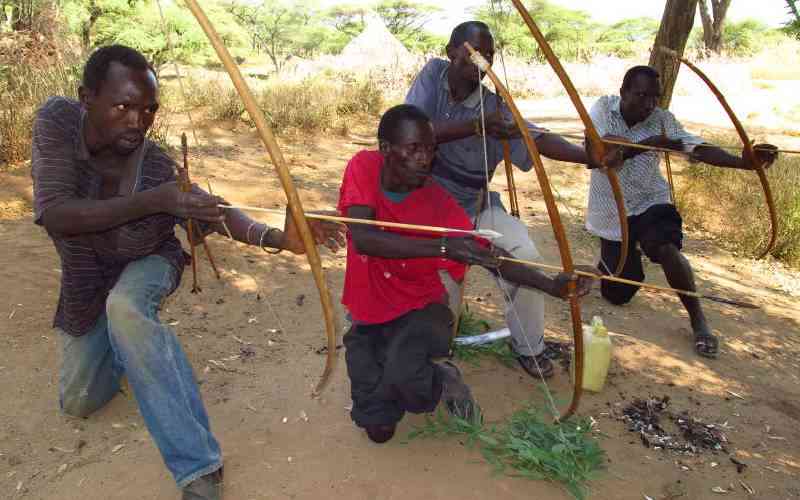Three men were on Thursday shot dead in a fierce battle over a disputed land in the Kerio Valley, a region also ravaged by banditry.
Kasui and Kiptakitwa clans that have been disputing over the piece of land in Mogil, Elgeyo Marakwet County for years faced off in a morning gun battle, resulting in the deaths.
According to police reports, the deadly gun battles commenced at 6am and lasted for hours. By 10am, when the guns went silent, three youthful men were dead in the fight where police said illegal firearms were deployed by the warring clans.
The attack happened just three days ahead of an interdenominational prayer service for Kerio Valley, an event set to be graced by President William Ruto in Tot, Marakwet East on Sunday January 5.
Kerio Valley sub-county police commander Zablon Okoyo said trouble started at 6am when youth from the Kasui clan allegedly invaded the disputed land.
Okoyo said the youth from Kasui destroyed mango trees and granaries in the disputed property, prompting those from Kiptakitwa to retaliate, causing a fierce exchange of fire as the piece of land turned into a battlefield.
The police boss said the two clans have been contesting the property for decades and had failed to reach an agreement on who was the rightful owner.
He said an unknown number of people from both clans sustained injuries during the morning attack.
“The fighting lasted from 6am. The police from Mogil station moved in to restore order and the situation was contained at around 10am. By the time calm was restored, three youthful men had already been shot dead and a number of locals injured. We are still working with security apparatus to ascertain the losses,” the sub-county commander told The Standard on telephone.
Okoyo further confirmed that all the three fallen men were from the Kasui clan. He said the police were relying on intelligence reports in pursuit of suspects of the fights from both clans.
“The firearms used during the attacks were illegal and the police are immediately commencing a crackdown to identify owners of the guns used in a fight that resulted in the deaths of three Kenyans,” Okoyo added.
Elgeyo Marakwet leaders condemned the attack, saying it was negating gains made in restoring calm in Kerio Valley.
Governor Wisley Rotich asked the asked the clans to cease hostilities, saying leaders were seeking to have elders address the matters through dialogue.
“The incidents that happened at Mogil this morning are unfortunate, unacceptable and regrettable. I have spoken to the county commander and security team on the ground to provide adequate security to ensure no more property and loss of lives as we open doors for an amicable solution to all parties involved,” Rotich said.
The Governor said he had dispatched his chief officer for peace and conflict resolution to immediately convene elders from the affected area for quick intervention.
Marakwet East MP Kangogo Bowen said the warring clans had more civilized means of resolving the land conflict.
The MP described the fatal attacks as uncouth and uncalled for.
“I have engaged the security and administrative officers to ensure the culprits are brought to book and justice served,” he said.
Several other clans in Marakwet have been fighting over land for decades.
In 2022, a man was killed in another land dispute pitting Kabasarin and Kapkeny clans in the troubled Kerio Valley. Another one died in Maron in 2021.
Kabishoi and Kapsiren clans have also been fighting for a disputed stretch of land in the Kerio Valley. By Stephen Rutto, The Standard






